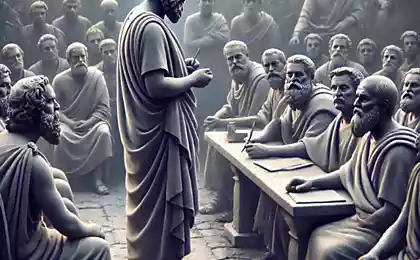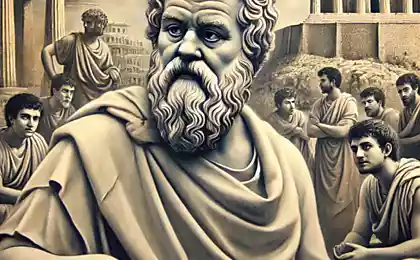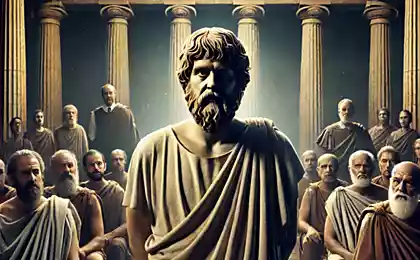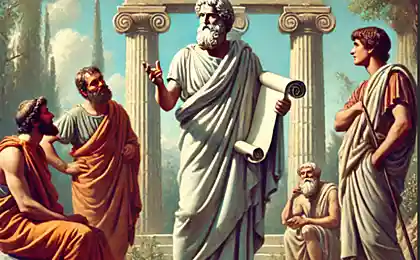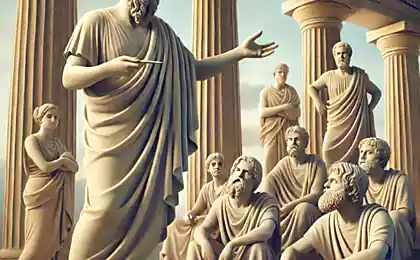223
Socrates: Summary of doctrine, method and philosophy

Introduction to Socrates Philosophy
Socrates is one of the most influential figures in the history of philosophy. His teachings laid the foundations of morality and ethics, which became a central theme of the Western philosophical tradition. Unlike other philosophers, Socrates left no written works behind. All information about his teachings came to us through the dialogues of his disciples, especially Plato.
Socrates said that knowledge is the key to virtue. He believed that through understanding and cognition a person can reach the highest moral state. Its main method is dialogue and the search for truth through questions, known as the method of mayeutics.

Mayeutic method
Socrates developed his famous method of mayeutics, which consists in bringing the interlocutor to an understanding of the truth through questions. Socrates believed that truth exists within every human being and must be “born” through the right questions. In dialogues, Socrates did not give ready-made answers, but, on the contrary, tried to help a person to come to an understanding.
Mayeutics has become the basis for many modern educational systems, where the emphasis is on interaction between teacher and student through dialogue.

The Legacy of Socrates
The influence of Socrates on subsequent generations of philosophers and thinkers is enormous. His disciples, such as Plato and Aristotle, continued to develop his ideas, making Socrates’ philosophy an integral part of the Western intellectual tradition.
Socrates emphasized the importance of morality, self-knowledge and critical thinking. He became a symbol of an independent thinker who was not afraid to defy established norms and seek truth even in the face of persecution and death.
Socrates’ philosophy is the key to understanding morality and self-knowledge.
The sequel is Part Two.
Artificial intelligence and its impact on the labor market: who will be out of work in the next 5 years?
The Teachings of Socrates: Part 2

